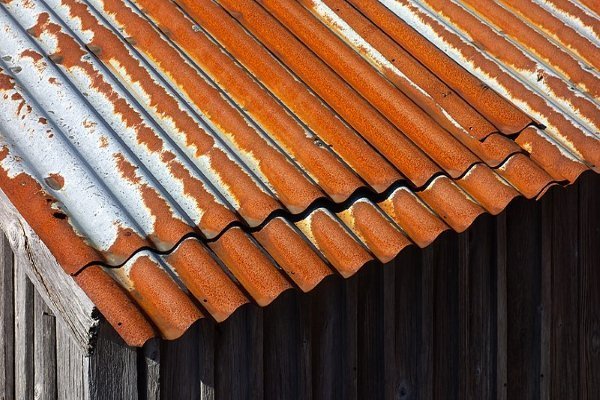
Corrosion happens when moisture infiltrates the steel core of your roofing material. In doing so, the moisture will oxidize steel and accelerate its rusting and corrosion. Rusted metal is weak because of its reduced density, brittle surface, and inability to prevent moisture from infiltrating the underlayment. However, corrosion is normal for corrugated and standing seam metal roofs -- but only if their steel cores are exposed.
Nowadays, steel roofing reduces corrosion and improves its lifespan through the process of galvanization. Zinc is a corrosion-resistant material that envelopes the steel core when manufacturers dip and allow them to rest and cure before final checks and packaging. Galvanized steel roofs have more than 50-70 years of exceptional roofing lifespan and capability.
On the other hand, aluminum coating steel roofs gives corrugated and standing seam metal roofs the anti-corrosive properties of aluminum while having the heft and density of steel. Aluminum is a lightweight roofing material that's impervious to rusting. However, it is too light that windstorms can tear them off properties without fail.
Using steel's density coupled with aluminum's corrosion resistance, galvalume roofs have a lifespan of over 70-100 years upon installation. While they're quite expensive, they guarantee long-term and greatly-durable roofing.
Corrosion is normal for steel roofs -- even galvanized and galvalume variants. It is an inevitable fact for all types of metal-based materials and structures. However, there are ways to reduce the accelerated corrosion of materials according to MBCI, and that is to determine lead and copper sources on your roof and make sure they do not interact with your material at all.
Lead and Copper with Metal Roofing
Lead and Copper are the biggest culprits when it comes to shortening the service life of metal roofing due to corrosion. It almost goes without saying to make sure these metals don’t come into contact with the roof, specifically roofs with Galvalume Plus products. Here we’ll take a brief look at some of the common problems that can arise.
Due to the high probability of corrosion, it is not advisable to use lead roofing products, such as lead roof jacks for pipe penetrations. Additionally, graphite, which is the primary material in the common pencil, is extremely corrosive to aluminum and aluminum alloys. Therefore, it is not advisable to write on a metal panel with a graphite pencil. In time, the element will eat through the coating and it will rust out. Eventually, you’ll actually be able to see whatever you wrote on there (that’s not what you want!). Instead, using a Sharpie or a grease pencil will solve the problem with little to no effort. (Continued)
Lastly, all metal roofs can last long if it has the proper installation process that ensures it can expand and contract evenly despite the changes in the weather. If you have yet to find a reliable roofer, you can always count on us at Roper Roofing to deliver exceptional roofing services for you in Denver CO. Learn more about everything that we can do for you by contacting us today!